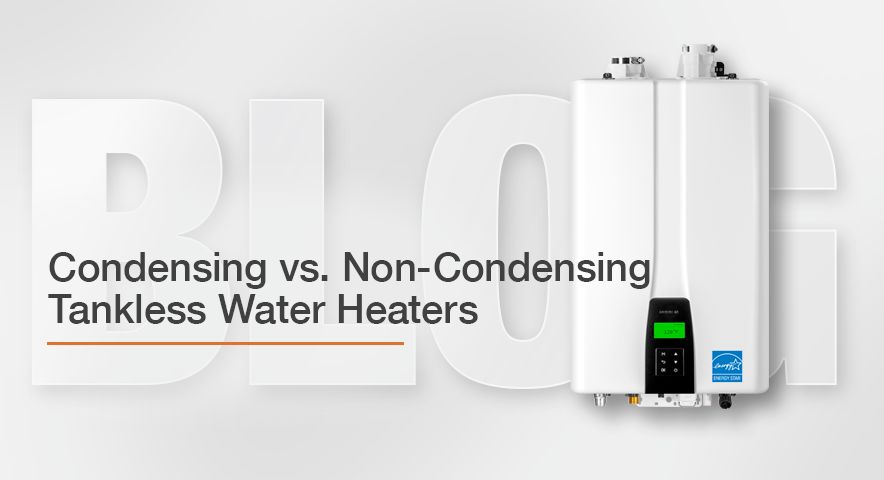When choosing between a condensing and non-condensing water heater, there are a few key factors to consider:
Efficiency
Condensing water heaters are generally more energy efficient than non-condensing models. This is because condensing heaters capture heat from the exhaust gases and use it to pre-heat the incoming cold water. This allows them to achieve efficiency levels of 90-98%, compared to 80-85% for non-condensing models.
| Water Heater Type | Efficiency Range |
|---|---|
| Condensing | 90-98% |
| Non-Condensing | 80-85% |
The higher efficiency of condensing models means lower energy bills over time.
Cost
Condensing water heaters tend to have a higher upfront cost. The heat exchanger required for condensing operation is more complex and expensive to manufacture.
| Water Heater Type | Average Cost |
|---|---|
| Condensing | $1,500 – $3,500 |
| Non-Condensing | $500 – $1,500 |
However, the energy savings from higher efficiency units can make up for the additional cost over time. The payback period depends on local energy costs.
Lifespan
In general, condensing water heaters have a slightly shorter lifespan than non-condensing. The acidic condensate created in the secondary heat exchanger can cause corrosion issues over time if not properly maintained.
| Water Heater Type | Typical Lifespan |
|---|---|
| Condensing | 8-15 years |
| Non-Condensing | 10-20 years |
Proper maintenance like flushing the heat exchanger annually can maximize lifespan. The warranty may also be a bit shorter on condensing models.
Installation
Condensing heaters need proper venting for exhaust gases, which usually requires PVC pipe or CPVC pipe. Non-condensing heaters can use more standard B-vent piping. Installation costs may be $200-$500 higher for a condensing unit as a result.
Condensing heaters also produce acidic condensate that needs to be neutralized or drained properly. A condensate pump or neutralizing kit is required.
Climate Considerations
In cold climates, condensing heaters may have reduced efficiency and lifespan if the exhaust gases drop below the dewpoint frequently. The condensate can freeze in the heat exchanger. Non-condensing heaters may be a better choice for frigid regions.
In hot climates, condensing heaters work well year-round. The high efficiency yields energy savings in air conditioning season by pre-heating cold inlet water.
Conclusion
For most homeowners, a condensing water heater is the better choice due to higher efficiency and long-term energy savings. However, the higher upfront cost and specialized venting requirements need consideration. In very cold climates, a non-condensing heater may be preferable. Condensing heaters also require a bit more maintenance. Overall, condensing models work well for the majority of homes when installed and maintained properly.
